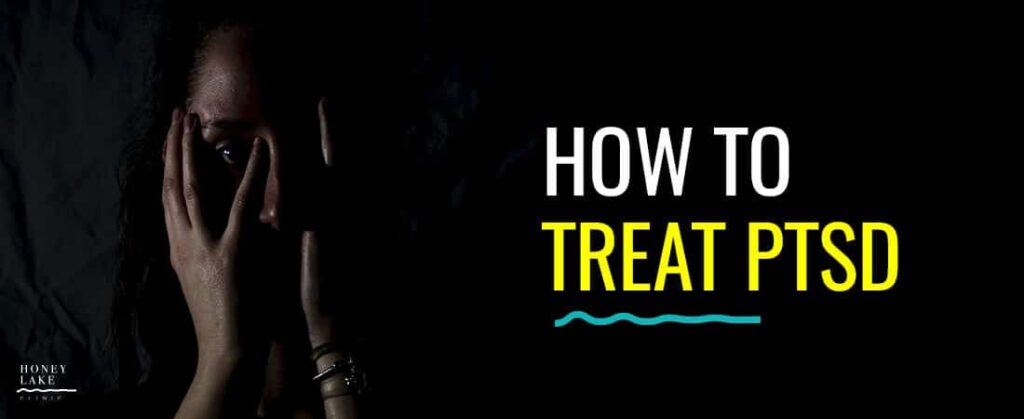How to Treat PTSD
Post-Traumatic Stress Disorder (PTSD) most commonly develops after a person experiences or witnesses a very stressful or traumatic event. It is often associated with violent or dangerous events such as physical or sexual abuse, combat, natural disasters and horrific accidents. It doesn’t always have to be a violent event—people can also develop PTSD after suffering psychological, emotional, relational, spiritual, or physical injury.
PTSD sufferers can experience significant difficulties in their daily lives. If you or someone you love suffers, take heart—we understand and we can help.
PTSD is characterized by recognizable symptoms. Here are a few of the most common:
- Flashbacks, hearing, seeing, or physically feeling events as if it is occurring again
- Nightmares, or flashbacks while asleep
- Frightening thoughts or images as a result of the event
- Emotions similar to those felt around or during the event
- Easily startled
Symptoms of PTSD usually begin shortly after a traumatic experience but can sometimes take years to develop. They can be triggered by words, objects, feelings, people, or events reminiscent of the traumatic experience.
Are you or is someone you love is suffering with PTSD? We understand what you’re going through. Speak with someone right now, confidentially, at (888) 837-6577.
How is PTSD Treated?
As with most mental illnesses, no cure exists for PTSD, but the symptoms can be effectively managed. By working with a mental health professional, individuals suffering with PTSD can address their triggering factors and learn new and effective ways of dealing with the stress of the past trauma.
Many different therapies may be utilized in treating PTSD. Some of the most common include group therapy, psychotherapy, cognitive behavioral therapy and hypnotherapy. In some cases, doctors will recommend a combination of one or more therapeutic approaches to most effectively meet the needs of an individual client.
Some people respond better to certain treatments than others. The effectiveness of a given treatment depends on numerous factors, including the client’s personality, the nature of the trauma, the severity of the symptoms, and the presence of a support network.
Some of the more common treatments for PTSD include:
Cognitive Behavioral Therapy
Cognitive behavioral therapy (CBT) which blends the principles behind cognitive psychology and behavioral therapy to create a comprehensive treatment approach. CBT focuses on the how the ability to problem-solve and think rationally can aid recovery—how the health of the mind (cognitive) impacts actions (behavior). CBT will work on helping the PTSD sufferer come to terms with the traumatic event and then find ways to modify behavior to cope more efficiently.
Group Therapy
Group therapy is another major treatment method for patients with PTSD. The major benefit of group therapy is it allows victims of trauma to connect with others who truly understand what they have been through. That understanding is also important for victims of violent crimes who may be alienated from their peers due to the uncommon nature of their experiences. Group therapy offers a safe place to discuss the traumatic events as well as any resulting feelings and behaviors without fear of judgment from others who have not been through a similar experience.
Residential Inpatient PTSD Treatment
If you or a loved one is suffering from post-traumatic stress disorder and you want to seek treatment, residential or inpatient PTSD treatment is a solid option. Treatment centers are staffed by experienced specialists who can assess your condition and formulate the best treatment plan for you in an atmosphere that is as stress-free as possible.
One of the most difficult aspects of living with PTSD is the fact that the individual can easily be triggered by ordinary events. Loud noises, bright lights and other common occurrences that are jarring to the senses can transport someone with PTSD back to the state they were in when the trauma occurred. These flashbacks can occur at any time, severely disrupting the flow of normal life.
A residential treatment center gives patients the opportunity to recover in an environment that is free from the stresses of everyday life and surrounded by professionals who understand the what they are going through.
Prescription Medications
Prescription medications are commonly prescribed to alleviate the symptoms of post-traumatic stress disorder and make living with the disorder more manageable, but medications alone are not an effective treatment.
The Department of Veterans Affairs reports that 20 percent of those who suffer from PTSD also suffer from a substance abuse problem. Many victims of trauma turn to drugs or alcohol to cope with the symptoms of PTSD and to avoid the perceived stigma of seeking treatment. Substance abuse may seem to be a way out in the beginning, but the improper use of drugs and alcohol to treat PTSD can only mask the symptoms for a little while.
To experience true recovery, it is necessary to seek professional treatment from a licensed mental health professional. Attempts at self-medication with either prescription drugs or substances will only lead to more problems and deeper depression.
Where can you turn for help?
We understand this can be overwhelming. We’d like to help you think through your options, and help you find the right answers.



